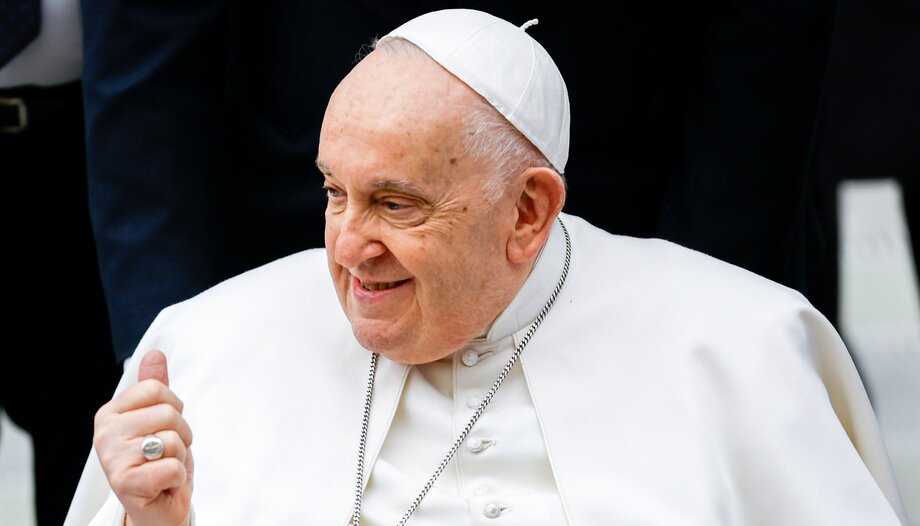The biblical text of reference for this catechesis on greed was the first letter to Timothy 6:8-10: "Having food and clothing, let us be content with these things. Those who desire to get rich succumb to temptation, are entangled in a snare, and fall prey to many foolish and harmful desires, which plunge men into ruin and perdition. For the love of money is the root of all evils, and some, carried away by it, have turned away from the faith and brought upon themselves much suffering."
Greed also affects the poor
The Pope defined greed as "a form of attachment to money that prevents human beings from being generous".
Francis stressed that this vice does not only affect the wealthy, but is a "disease of the heart, not of the wallet". In fact, he gave as an example the teachings of the desert fathers, who indicated that greed could also take hold of monks, even though they had renounced huge inheritances to begin their monastic life. However, they sometimes perceived among them an attachment to objects of little value, and a reluctance to lend or give them away.
The Pope pointed out that it is a kind of return to the infantile phase, when children do not stop saying: "He is mine, he is mine". It is "an attachment that takes away freedom". This leads to an unhealthy relationship with reality, which can lead to compulsive accumulation.
Greed and death
To cure themselves of this vice, the monks proposed a "drastic method": meditating on death. Thus, "the meaning of this vice is revealed", and it becomes clear that our bond of possession with things is apparent, since we are not the "masters of the world", but "strangers and pilgrims on this earth".
But what is the deep root of greed? The Pope has pointed out that, deep down, its origin lies in the "attempt to exorcise the fear of death", it seeks securities, although, in the end, this apparent control crumbles.
The Pope gave as an example a parable from the Gospel in which the foolish man has a great harvest and begins to plan his future and to think about enlarging the storehouses: "'And then I will say to myself: my soul, you have goods stored up for many years; rest, eat, drink, feast joyfully. But God said to him, 'You fool, tonight they will claim your soul, and whose will it be that you have prepared?'" (Lk 12:19-20).
Detachment
Francis once again used an anecdote of the desert fathers to explain the attitude of detachment that is necessary to maintain a healthy relationship with our possessions. In it, a thief steals from a monk while he is sleeping and, when the monk wakes up, he is not disturbed by what happened, but follows the thief and, instead of demanding anything from him, he gives him what little he left, saying: "You forgot to take this".
If we do not live this attitude of detachment, instead of possessing our goods, they possess us. This is why some rich people are not free, the Pope points out, because, on the other hand, goods require safekeeping, and a patrimony obtained with great effort can "disappear in a minute".
Correct administration
The Pope stressed that riches in themselves are not a sin, but a responsibility that must be properly administered. "That is what the miser does not understand," Francis pointed out. His wealth could have been a good for many, but instead it has become a source of unhappiness.
In this regard, Francis, leaving aside the written discourse, recalled the real case of a rich man whose mother was ill. The brothers took turns taking care of her, and he gave her half a yogurt in the morning and half a yogurt in the afternoon, in order to save money and not give her a whole yogurt. Then this man died and the people at the funeral laughed at his greed, saying that they were not going to be able to close the coffin because of how greedy he was.
The Holy Father indicated that we must be detached and "leave everything". "Let us be attentive and generous," he concluded.
Appeal for peace
Readers have then read a summary of the catechesis in different languages. The summary in Spanish has been made by the Pope himself.
Finally, Francis recalled the international day of commemoration of the victims of the Holocaust to be celebrated next Saturday, January 27, indicating that "hatred and violence can never be justified". "War is a denial of humanity," the Pope pointed out, recalling the victims of wars and making special mention of Palestine, Israel and Ukraine and the bombing against areas frequented by civilians. "I implore everyone to guard human life," the Pope asked, adding that "war is always a defeat."








